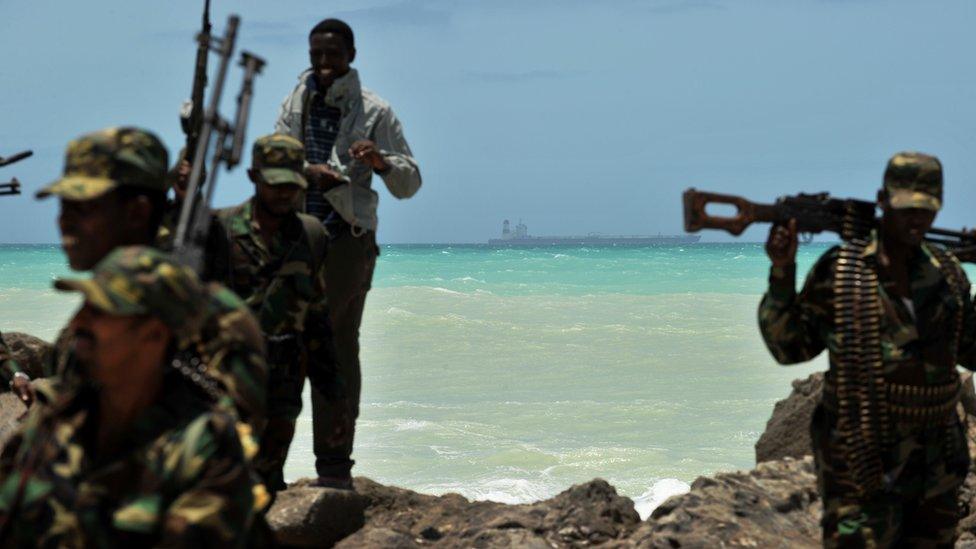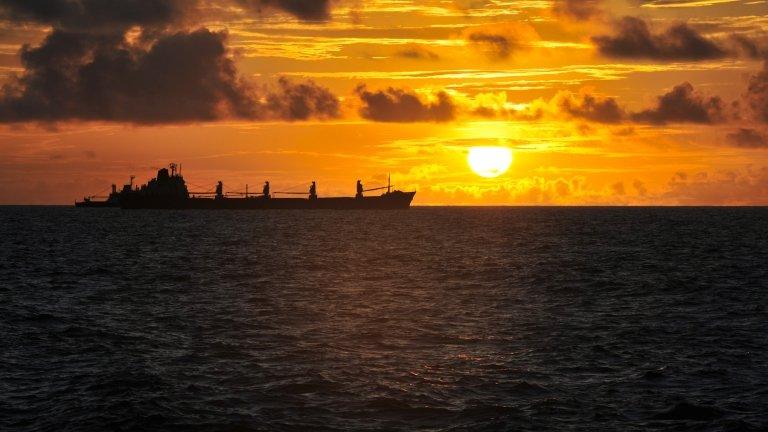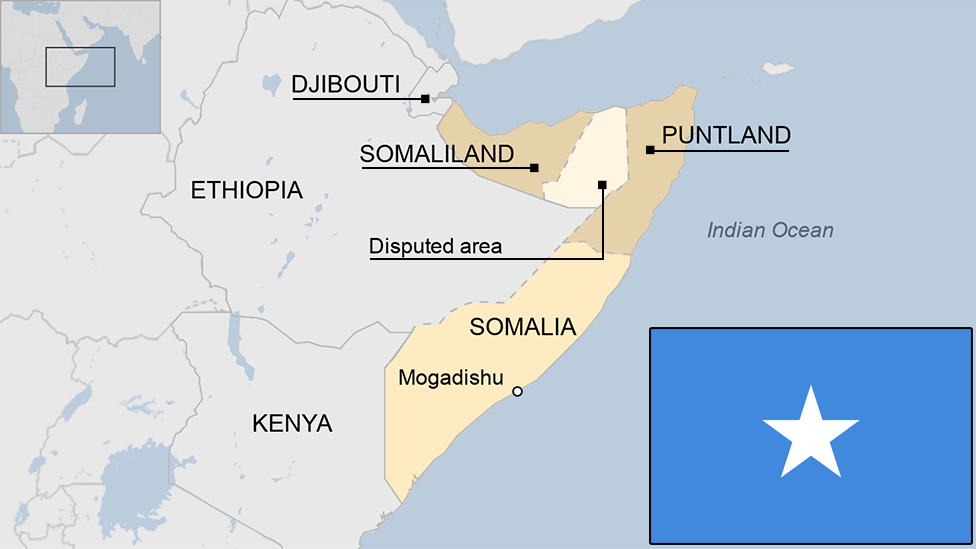Somalia drought fuelling piracy - US Africa command head
- Published

The number of pirate attacks peaked in 2011 before dropping to zero as a result of naval patrols
The recent rise in piracy off the Somali coast has been partially fuelled by drought and famine, a top US army officer has said.
General Thomas Waldhauser, head of US Africa Command, said there had been half a dozen attacks in the last month.
About three million Somalis face food insecurity and a national disaster was declared last month.
Piracy was rampant off the Somali coast until increased patrols by European naval forces contained the problem.
US Defence Secretary Jim Mattis expressed concerns about the resurgence of Somali piracy during a visit to the American military base in Djibouti.
Mr Mattis suggested commercial vessels should consider stepping up onboard security to guard against attacks at sea, saying the situation is being monitored but there was no plan of an immediate response.
One reason for the increase in the attacks is famine and droughts in the region, as some of the vessels targeted were carrying food and oil, Gen Waldhauser told a press conference.
"The bottom line is there have been a half dozen or so [incidents]," he said.
"We're not ready to say there is a trend there yet but we'll continue to watch."
The number of attacks peaked in 2011 before dropping to zero, mainly as a result of naval patrols and improved security measures by shipping companies.
Is piracy returning to Somalia?
Last month, an oil tanker was hijacked by suspected pirates off the coast of Somalia, the first such hijacking in the region in five years.
The vessel was en route from Djibouti to the Somali capital, Mogadishu, and was then diverted towards the port of Alula in the semi-autonomous Somali region of Puntland.
Some of the men who are blamed for the attacks deny the allegations of piracy, saying they are fishermen who suffer from foreign trawlers fishing illegally in the area.
Somalia is one of four countries in Africa and the Middle East identified by the United Nations as currently at risk of extreme hunger and famine.
The humanitarian crisis is the result of drought that has been partly caused by the El Nino weather phenomenon which has affected east and southern Africa but all four countries are also suffering from conflict.
- Published31 August 2015
- Published29 November 2012

- Published2 January 2024
